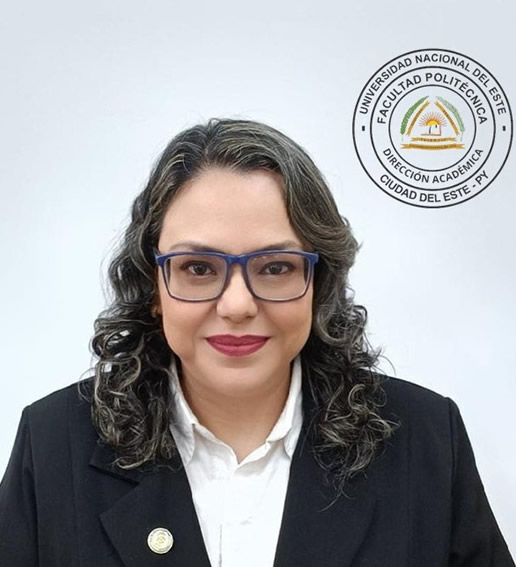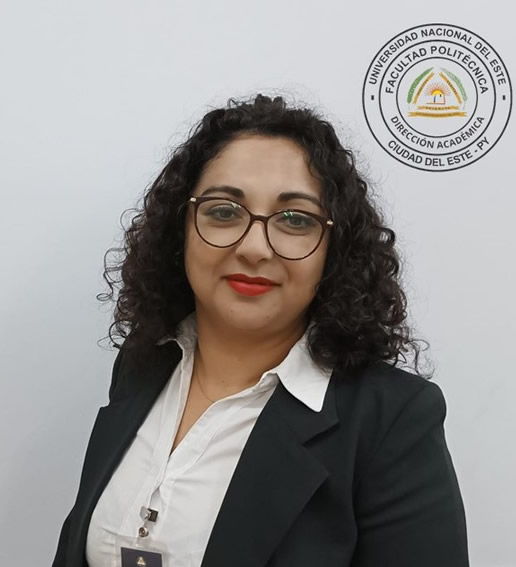Licenciatura en Análisis de Sistemas

2025 CURRICULUM PLAN
Duration: 4.5 years
Mode: Undergraduate program
Degree: Bachelor of Systems Analysis
Academic unit: Faculty of Engineering
MISSION OF THE CAREER
To train ethical, innovative, and proactive professionals with the competencies to analyze, design, implement, and manage technological solutions that drive development and innovation in various sectors, adapting to technological changes and contributing to the sustainable development of the social, economic, and environmental environment.
VISION OF THE CAREER
To train professionals in Systems Analysis, recognized for their academic excellence and their ability to lead technological development, committed to innovation, ethics, and a positive impact on society, prepared to face the challenges of a dynamic and global environment.
GENERAL OBJECTIVE
- To train innovative and proactive professionals, competent and entrepreneurial, capable of linking organizational requirements with IT requirements in any field of knowledge-based activities in terms of information, in order to analyze, design, implement, or innovate IT systems.
SPECIFIC OBJECTIVES
- To train future systems analysts in the use of current tools and technologies for the analysis, design, and implementation of IT systems, so that they acquire practical skills in programming, databases, and software development.
- To promote critical thinking, research, and creativity, enabling the identification and resolution of complex problems in organizational environments through IT innovation, adapting them to the needs.
- To prepare future professionals in project management methodologies and teamwork to plan, execute, and evaluate IT projects, ensuring their alignment with the strategic objectives of organizations.
GRADUATE PROFILE
The graduate in Systems Analysis is a comprehensive professional with the skills to manage and optimize information systems in diverse environments, capable of analyzing, designing, developing, and implementing innovative technological solutions that respond to emerging needs, as well as working collaboratively in multidisciplinary teams, effectively interacting with end users, applying analytical, technical, research, managerial, and interpersonal skills, focusing on continuous innovation and leadership in a globalized environment.
OCCUPATIONAL FIELD
The Systems Analyst has a broad occupational field, ranging from systems management and consulting to entrepreneurship, teaching, and research. Their ability to adapt to technological changes and lead teams for digital transformation makes them a key professional for developing new technological solutions in various sectors, both in public and private organizations.
COMPETENCIES
GENERIC
The Systems Analysis student will be able to:
- C.G. 1. Identify, pose, and effectively solve problems.
- C.G. 2. Have abilities in logical, mathematical, and physical reasoning.
- C.G. 3. Apply Information and Communication Technologies (ICT) to express ideas and results.
- C.G. 4. Demonstrate a commitment to quality and innovation in all activities.
- C.G. 5. Have an objective, critical, self-critical, and divergent attitude.
- C.G. 6. Have a creative attitude, leadership, entrepreneurship, resilience, negotiation, and persuasion.
- C.G. 7. Design, formulate, plan, manage, and execute projects.
- C.G. 8. Apply workplace prevention, safety, and hygiene standards.
- C.G. 9. Acquire ethical commitment and professional responsibility.
- C.G. 10. Reflect on the ethical implications of using information and communication technologies, promoting responsible and sustainable use.
- C.G. 11. Research in various sources and act independently, learning independently.
- C.G. 12. Have the skills to work in multidisciplinary teams, respecting inclusivity and multicultural diversity.
- C.G. 13. Have the ability to abstract, analyze, and synthesize.
- C.G. 14. Acquire a commitment to the environment.
- C.G. 15. Assume social responsibility for improving quality of life.
- C.G. 16. Have the ability to adapt to new and changing situations.
- C.G. 17. Acquire computing technical skills in the use of tools and resources.
- C.G. 18. Plan and manage time and task organization.
- C.G. 19. Manage technological and organizational change that facilitates the transition to new IT methodologies and tools.
SPECIFIC
The Systems Analysis student will be able to:
- C.E. 1. Apply theoretical-practical, administrative, ethical, legal, and regulatory knowledge for decision-making.
- C.E. 2. Understand and apply technical terminology in Spanish and/or English when reading and drafting technical documents.
- C.E. 3. Understand how businesses operate, including accounting and costs, to identify problems and propose improvement solutions using IT.
- C.E. 4. Integrate theoretical and practical knowledge to interpret, apply, generate, and disseminate IT, technical, and management knowledge in their areas of expertise.
- C.E. 5. Integrate mathematical, statistical, and probabilistic concepts and techniques.
- C.E. 6. Formulate and analyze mathematical models using IT tools.
- C.E. 7. Identify, analyze, abstract, formulate, and solve problems related to their areas of knowledge, applying existing IT technology.
- C.E. 8. Design, formulate, plan, lead, manage, and execute IT projects by applying economic, financial, legal, ethical, social, environmental, and security requirements.
- C.E. 9. Develop, implement, and manage technological solutions to propose entrepreneurial alternatives.
- C.E. 10. Design information systems using the appropriate IT tools for the needs.
- C.E. 11. Design, implement, and optimize data structures and software according to needs for decision-making.
- C.E. 12. Apply software development principles and methodologies for designing, developing, implementing, and managing IT projects.
- C.E. 13. Correctly use techniques and tools to investigate, analyze, and audit IT activities.
- C.E. 14. Apply principles of programming, systems administration, and operations research to improve the efficiency and security of IT systems.
- C.E. 15. Integrate technological innovation knowledge and entrepreneurship strategies to create solutions.
- C.E. 16. Develop research skills by creating and executing projects that integrate theoretical and practical knowledge.
- C.E. 17. Plan, develop, and execute research projects, applying administrative, ethical, legal, regulatory, and environmental principles.
- C.E. 18. Manage technological infrastructure, including cloud solutions.
- C.E. 19. Develop contingency and disaster recovery plans to protect data and ensure operational continuity.
- C.E. 20. Analyze current and future IT trends to sustainably optimize technological infrastructures.
- C.E. 21. Manage enterprise networks and integrate emerging technologies ensuring a secure and scalable infrastructure.
ADMISSION REQUIREMENT
The Polytechnic Faculty of the Universidad Nacional del Este for the Systems Analysis degree program establishes a leveling course and an admission exam, open to the general public interested in joining the program, provided that the applicant meets all the requirements established in the Internal Regulations - Art. 48 and in the Admission Process Project.
GRADUATION REQUIREMENT
The Systems Analysis program at the Polytechnic Faculty of the Universidad Nacional del Este requires the following for a student to graduate with a Bachelor's in Systems Analysis:
- Pass all the subjects in the Study Plan.
- Have completed the total number of hours planned for the entire program (3,170 hours), including those corresponding to University Extension activities (50 hours) and the Supervised Professional Internship (240 hours).
- Present and defend a final project, which must be approved by an examining board set up for that purpose, once all previous requirements have been met.
Coordination Staff of Systems Analysis.
Lic. Yeny Mendoza
Coordinadora de la Carrera de Análisis de Sistemas
analisis@fpune.edu.py
Int. 217
Lic. Mariela Ledesma
Asistente de la Carrera de Análisis de Sistemas
analisis@fpune.edu.py
Int. 238
Marcos Santander
Asistente Académico
Int. 238



